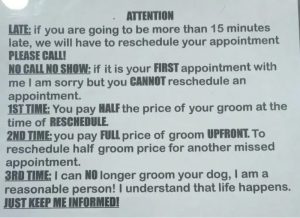The price of hiring the average nanny is based on your family’s needs and where you live. Some nurses earn up to $25 per hour, while others are paid the minimum wage of a specific state.
Before agreeing on a nanny’s salary, consider what you are looking for in a nanny. For example, you need to ask yourself the following questions. Am I looking for a full-time or part-time nanny? What qualifications and years of experience should the ideal candidate have? What will be their responsibilities? Use the answers to these questions as a guide to help you make an informative decision.
How much do most Nannies make an Hour?

Reports released earlier this month suggest that a nanny in the US earns a national average of $15.91 per hour. This cost might vary from one state to another. For example, a nanny in Los Angeles or Houston could earn more than a nanny in Washington DC and Seattle, or vice versa, based on the cost of living in those states.
The reports show that some nannies earn higher amounts of up to $30.77 in hourly wages while others earn lower payments of up to $6.97. However, the average nanny makes $11.06 and $19.71 in the United States. Worth mentioning is that the International Nanny Association Salary & Benefits Survey conducted in 2017 pinned the average hourly wage in the United States at $19.14
Who is the Highest Paid Nanny?
A governess is the highest paying nanny job in the United States, with a salary ranging between $46,000 and $80,000 per year. Their huge salaries indicate a higher chance of advancing their careers and getting a higher pay based on their years of experience and skill level.
A governess is a trained childcare provider that works with children to teach them various elements. Often, they work with children from around five years, even though some parents may hire a governess for kids from 3 years.
What is the Average Salary for a Nanny?
The average annual pay for a full-time nanny is $40,043 in the United States. According to ZipRecruiter, annual salaries for nannies in the US can rise to $66,500 or drop up to $11,500. Today, a significant percentage of full-time nanny salaries range between $31,000 and $46,000, with leading earners in the US making $60,000 per year.
How many Hours do Nannies Work in a Day?
The number of hours a nanny works ranges between 10 and 12 hours every day for five or six days. They usually have one day off during the weekend. However, some families may need a live-in nanny to offer round-the-clock support.
Understanding the Factors that Influence Nanny Salaries
Nanny salaries are not fixed and can vary significantly based on a multitude of factors. To understand why nanny salaries can differ so greatly, it’s important to consider the following key elements:
1. Geographical Location
Nanny salaries can vary significantly based on the region or city where you live. Urban areas, where the cost of living tends to be higher, often have higher average nanny salaries compared to rural areas. It’s essential to research the average rates in your specific location to ensure fair compensation.
2. Nanny’s Experience and Qualifications
Experience plays a vital role in determining a nanny’s earning potential. Nannies with more years of experience often command higher salaries due to their expertise in handling various situations and their ability to provide top-quality care. Additionally, nannies with specialized training, such as early childhood education certifications or CPR training, may be able to negotiate higher compensation.
3. Number of Children and Their Ages
The number of children a nanny is responsible for directly impacts their workload and thus their salary. Caring for multiple children requires more attention, energy, and organization. Furthermore, the ages of the children can also influence the complexity of the job. Infants and toddlers typically require more intensive care compared to older children, which can justify higher pay.
4. Nanny’s Responsibilities and Additional Tasks
Beyond basic childcare, nannies may be responsible for various additional tasks. These could include preparing meals, helping with homework, driving children to activities, and light housekeeping. The more responsibilities a nanny takes on, the more valuable their role becomes, warranting a higher compensation package.
5. Specialized Skills and Qualifications
Nannies with specialized skills, such as fluency in multiple languages, expertise in specific educational methodologies, or experience with special needs children, often command higher salaries. These skills bring added value to the family and can contribute to a child’s development and well-being.
6. Live-In vs. Live-Out Arrangements
The type of arrangement—live-in or live-out—can impact a nanny’s compensation. Live-in nannies often receive accommodations and meals in addition to their salary, which can influence the overall package. Live-out nannies may negotiate higher pay to cover commuting costs and potential inconveniences.
7. Additional Perks and Benefits
Families may offer additional perks and benefits to attract and retain quality nannies. Health insurance, paid time off, contributions to retirement accounts, and performance-based bonuses are examples of benefits that can make a compensation package more attractive.
Understanding these factors helps both nannies and families arrive at a fair and competitive compensation package that takes into account the nanny’s qualifications and the family’s needs. When discussing compensation, transparency and open communication are essential to ensure both parties are satisfied with the arrangement.
Remember that while these factors are crucial in determining nanny salaries, every situation is unique. Finding the right balance between fair compensation for nannies and a budget that works for the family is a collaborative effort that can result in a successful, mutually beneficial arrangement.
Can a Nanny be a Salaried Employee?
You should give your nanny fair compensation by providing a sufficient monthly, weekly, or hourly rate as an employer. For many families, offering a flat rate is one of the most efficient and straightforward methods of executing compensation. However, it’s essential to understand that by law, nannies are hourly employees entitled to receive payment for all the hours they work based on an hourly rate.
They are also eligible for overtime pay. According to the Fair Labor Standards Act, household staffing should be paid hourly. As a result, incorrect phrasing of the work agreement to your nanny could place you at risk of unpaid overtime or wage claims.
Employers can protect themselves from such claims by discussing their nanny’s hourly rate payment schedule based on a standard workweek for their families. To be on the safe side of the law, consider working with professionals who can help you with the payroll service and nanny taxes.
Do Nannies make Good Money?

Nanny pay rates depend on their level of experience. For example, nannies with one year of experience can make an average of $521 weekly salary, while those with an experience of two years earn up to $603 weekly.
Nannies with more than 20 years of experience can earn up to $734 weekly. A high educational qualification also exposes nurses to higher pay. For example, nannies with a bachelor’s degree make an average of $633, while those with a master’s degree can earn approximately $725 weekly.
What Qualifications do I need to be a Nanny?
Many employers search for an individual with a mix of nanny experience and educational qualifications. Still, professional nannies are not under any legal obligation to have qualifications, even though many of them in the US and the UK has a robust education background.
Some families prefer working with qualified nannies to be assured of their knowledge and dedication to their work. If your employer insists on qualifications, you can enroll for a nanny diploma and acquire certifications from a reliable institution. The professional nanny training will help you understand what you need to know about the safety and health of young children, child development, and child psychology.
What is the Difference Between a Babysitter and a Nanny
- Nannies usually work full time for one family while a babysitter is used as needed or on-call basis. Unlike nannies, babysitters work for various families at a time. Nannies and babysitters have different duties.
- Live-in and live-out nannies have a hands-on role that includes helping children with their homework, preparing meals, putting kids to sleep, preparing children for school, and cleaning their clothes. On the other hand, babysitters often work part-time and seek extra working hours. Their duties include supervising children and ensuring they are safe as they play.
- Professional full-time nannies often have an advanced background, such as a degree in early childhood education and several years of experience. They often possess specialized training and experience working with special needs children and usually help parents bring out the best in their children.
- While some babysitters have an advanced college degree, many have an entry-level certificate in childcare. Nannies working in significant metropolitan locations like San Francisco and New York City earn an hourly rate ranging between $25 and $40. Babysitters are also paid per hour based on where they live and the roles they execute.
How to Address a Nanny who isn’t Following Basic Instructions
Dealing with a newborn care specialist who doesn’t follow basic instructions can be frustrating. However, you can sort out any issues by listening to them carefully to determine the primary reason and take the necessary action. Sometimes they will have a good reason for behaving in a specific manner.
Always maintain your calm. Remember, scolding or yelling at your nanny could trigger anger and result in a heated dispute. Remaining calm helps you discuss matters rationally while avoiding the blame game. In this case, you will work together to seek viable solutions. Discuss issues with your nanny to understand each other’s perspectives. Proper communication is crucial when it comes to solving problems.
Finally
Finding the right nanny is the first thing you should do before you can negotiate their salary. You can use various methods to get an interview with the right nanny for your family’s needs. Job boards like care.com can help you in your search for a caregiver. Using a scheduling system is one of the most effective methods of tracking your nanny’s interview schedules. Do you need an all-inclusive calendar-based booking system?
Resources:
https://www.ziprecruiter.com/
https://www.estateandmanor.com/household-staff/hiring-a-live-in-nanny/#:~:text=What%20is%20a%20live%20in,provide%20around%20the%20clock%20support
https://info.homeworksolutions.com/blog/offering-a-nanny-a-salary-what-you-need-to-know
https://work.chron.com/much-nanny-earn-9517.html
















